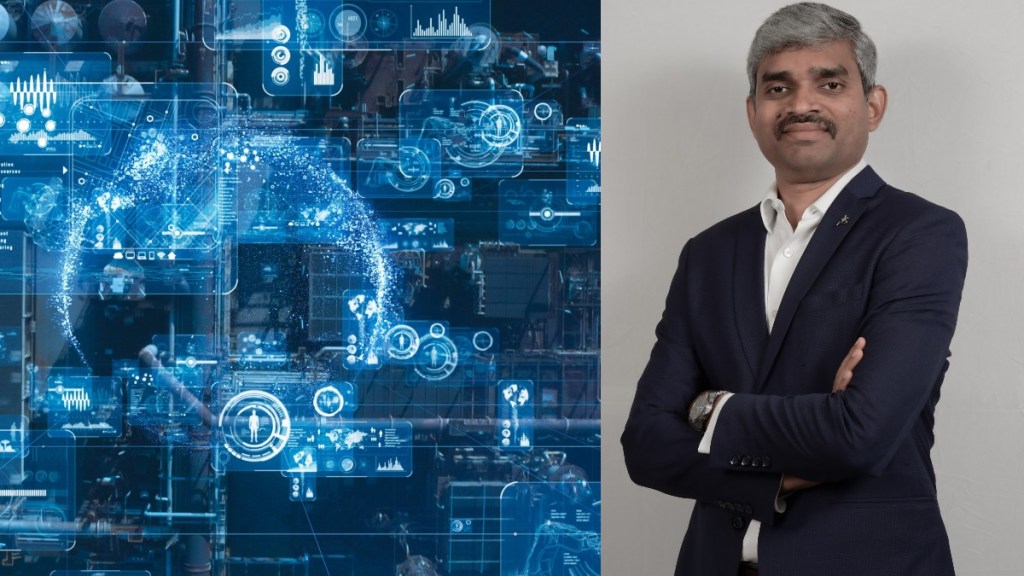The aerospace industry is now focused on reducing its carbon footprint and decarbonising aviation. While there are many technological options such as sustainable aviation fuels, hydrogen fuel, and electrical aviation, it’s important to establish the right ecosystem to effectively utilize these alternatives.
The 3DEXPERIENCE platform from Dassault Systemes is helping to make low-carbon flights a reality, says Azmathullah Mohammed, Senior Director, Customer Solution Experience, Dassault Systèmes India.
Following are excerpts
How does the 3DEXPERIENCE platform empower innovators tackle the challenge of energy-source transition for aviation?
The platform provides tools for digital twinning which allows companies to create virtual representations of their aircraft and power systems. These digital twins can be used to simulate different energy sources and technologies such as alternative fuels and electrification and evaluate their impact on fuel efficiency, range, and emissions. Additionally, the platform can be used to design lighter and more aerodynamic aircraft structures, as well as simulate the performance of advanced battery systems and electric motors.
The 3DEXPERIENCE platform also offers a collaborative environment that supports cross-functional teams and partnerships between companies, researchers, and regulatory organizations. This environment is helping to speed up the development of new energy-efficient solutions for aviation and ensure they are safe, reliable, and meet regulatory standards.
How does Dassault Systemes look at the future prospect of the Aerospace Manufacturing segment in India?
The Indian Aerospace and defence manufacturing industry is one of the significant sectors for the economy. We are already witnessing great opportunities for both domestic and global players with new policies and increased FDI. The industry is likely to accelerate with rising demands, not only to meet domestic needs but also to cater to the international market. The Indian government has set the defence production target at US$ 25.00 billion by 2025 (including US$ 5 billion from exports by 2025). Now to achieve this, modernization is required, mainly to focus on cost, time and quality. Government is going to look at all three aspects, we being associated with A&D industry in India we are witnessing strong push from government to promote SMEs, public sector undertakings and start-ups. This will enable the domestic industry to benefit in areas of design, innovation and manufacturing, all critical for the economy.
Can you provide specific examples of how additive manufacturing has been used in the aviation sector and the impact it has had?
The aviation industry, with its tight regulations and emphasis on safety, has historically had long lead times for introducing new products. However, new technology like additive manufacturing and 3D printing is changing this by enabling faster and more efficient production of lighter and more reliable aerospace parts. This is made possible by the ability to produce complex shapes and reduced waste, weight, and costs. These advancements in technology are revolutionizing the aerospace industry and cutting down production timelines.
How are Dassault Systemes’ solutions helping manage / address the growing complexities of multiple systems in Aerospace?
At Dassault Systemes, we understand the challenges faced by the aerospace industry in managing the growing complexities of multiple systems.
Our cloud-enabled 3DEXPERIENCE platform is a prime example of how we are helping aerospace companies navigate the complexities of their systems. The platform provides a centralized, digital environment that enables organizations to manage every aspect of the product development process, from design to manufacturing. It enables teams to collaborate more effectively, streamline their processes, and make informed decisions, all within a single platform. The platform creates a virtual twin experience and enables evaluation of multiple scenarios for sustainable and cost-effective production of rocketry and satellite systems with faster delivery.
Can you provide some examples of successful projects or initiatives that have leveraged these technologies in the aviation sector?
National Aerospace Laboratories (NAL), a constituent of Council of Scientific and Industrial Research (CSIR) is an example of an exciting application. By using 3DEXPERIENCE platform to design civil aircraft in India, the company was successful in reducing engineering costs in cabin completion by up to 40 per cent through engineering, manufacturing and certification processes automation. It also helped in increasing brand perception and reducing content creation by 40 per cent for all passenger touch points for sales and marketing.
India-based unmanned aerial systems (UAS) developer General Aeronautics is leveraging cutting-edge technology to help tackle some of the country’s most pressing issues. By leveraging Dassault Systèmes, 3DEXPERIENCE platform, the company has cloud-based access to digital design and simulation applications in a single, secure environment that offers quick and easy deployment. A standardized design and product development approach on the 3DEXPERIENCE platform reduces design iterations significantly, allowing faster convergence and significantly speeding up time to market.
What is Dassault Systemes’ dedication to India with regards to research and development in the aerospace industry?
Dassault Systemes is dedicated to promoting the growth of the aerospace industry in India through R&D. Recently, we signed an MoU with Tamil Nadu Industrial Development Corporation to establish the Tamil Nadu Centre of Advance Manufacturing in Chennai. This centre offers an IT engineering ecosystem to support MSMEs, startups, and students across Tamil Nadu in industries such as aerospace, defence, automotive, and electric vehicles. Dassault Systemes has also introduced a new concept called “Digital Trial Rooms” aimed at revolutionizing the MSME sector in security infrastructure manufacturing. This “common shared infrastructure model,” is essentially an innovation centre where digital technologies are hosted by the government and Dassault Systèmes.

